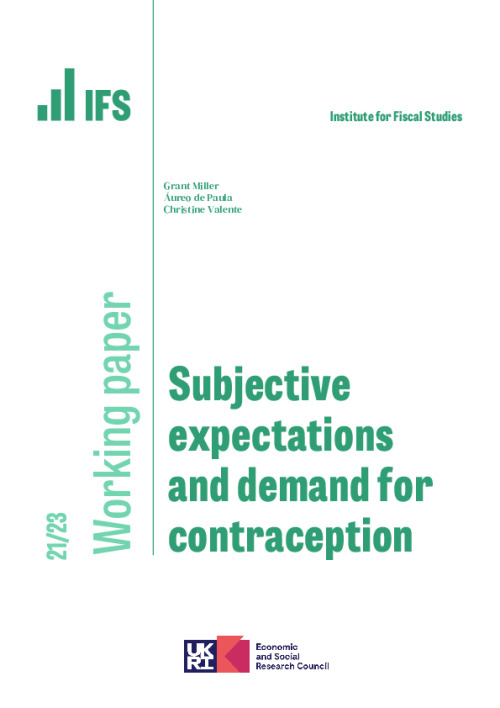Downloads
One-quarter of married, fertile-age women in Sub-Saharan Africa report not wanting a pregnancy and yet do not use contraceptives. To study this issue, we collect detailed data on women’s subjective probabilistic beliefs and estimate a structural model of contraceptive choices. Our results indicate that costly interventions like eliminating supply constraints would only modestly increase contraceptive use. Alternatively, increasing partners’ approval of methods, aligning partners’ fertility preferences with women’s, and correcting women’s beliefs about pregnancy risk absent contraception have the potential to increase use considerably. Results from a within-subject experiment testing this last finding are highly consistent with the structural estimates.
Authors

Research Fellow University College London
Áureo is an applied econometrician with strong interests in both methodological and empirical questions, affiliated with UCL, Cemmap, IFS and CEPR.

Grant Miller

Christine Valente
Working Paper details
- DOI
- 10.1920/wp.ifs.2021.2321
- Publisher
- Institute for Fiscal Studies
Suggested citation
More from IFS
Understand this issue

Conservative Party Conference: Can the next government afford the NHS?

Liberal Democrat manifesto: a reaction
10 June 2024

Retirement is not always a choice that workers can afford to make
6 November 2023
Policy analysis

How do the last five years measure up on levelling up?
19 June 2024

A response to the Conservatives’ proposals to reduce growth in the health-related benefits bill
8 June 2024

The past and future of UK health spending
14 May 2024
Academic research

The role of hospital networks in individual mortality
13 May 2024

Targeting men, women or both to reduce child marriage
28 May 2024

Keeping the peace whilst getting your way: Information, persuasion and intimate partner violence
17 May 2024
